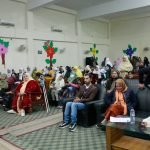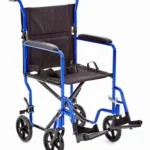My profile
Allow me to introduce myself. I am Ghulam Muhammad Baig, a soon-to-be graduate of Politics and International Relations at Strathclyde University in Glasgow, UK. In today’s world, I am deeply passionate about the active involvement of young people in social work. As a person with a disability, I understand firsthand how our experiences can shape the world we live in.
As an immigrant from Pakistan, I’ve had the opportunity to experience education in both the UK and my home country. This journey has not only broadened my horizons but also highlighted the common challenges faced by individuals with disabilities in both nations.
Moreover, during those years, my educational experiences were even divided between Additional Support Needs Schools (special schools) and mainstream education.
A mind boggle
have used this heading because explaining how I was educated is complex in itself. I will try to express it without using complex terms or lengthy discussions. In Additional Support Needs Schools, students often aren’t challenged to their full potential, which is unfortunate. However, these schools do offer great facilities, including:
- One-on-one care from a support assistant for each disabled student
- Smaller classrooms
- Bus support
- Speech therapy/Occupational therapy
- Physical therapy
- Support for free school meals
- Personal guidance
Reflecting on it, I realize that the concept of specialized schools for the disabled can feel uncomfortably close to segregation. It seems as though society is saying it doesn’t want to address their needs, so it isolates them into separate units.
I am not saying that is wrong; I am just saying that it limits or generalizes every disabled individual to not be of a sane mind. Having said that, multiple disablities, such as autism, and other physical disablities, such as ceberal palsy, which I have a mild form of benefit from it.
If it were not for my teachers like Ms Patterson and Robyn at the City of Glasgow College, I would not have become the student I am today.
How did this help me in focusing on charity work?
As I grew older, now at the age of 24, I began to understand that in third-world countries like Pakistan, especially in regions such as Gilgit Baltistan, issues like mine might not be openly discussed or addressed. These regions often face significant challenges, including limited resources, lack of awareness, and cultural stigmas, which can hinder open conversations and effective action on such matters.
Despite this, I held onto a glimmer of hope that progress could be made in Gilgit Baltistan, particularly because of the presence of organizations like the Aga Khan Development Network (AKDN). The AKDN has a strong reputation for its work in health, education, and community development, and its initiatives have brought about positive change in many underserved areas. I hoped that their efforts might extend to addressing issues like mine, raising awareness, and providing support and resources to those in need.
However, such changes take time and require a concerted effort from multiple stakeholders, including local communities, government bodies, and international organizations. While the presence of organizations like the AKDN is a promising start, there is still a long way to go to ensure that these issues are brought to the forefront and adequately addressed in regions like Gilgit Baltistan.
Situation on ground
Despite Gilgit Baltistan being one of the highest-educated regions of Pakistan, the disabled community suffers significantly, reflecting the shortcomings of the government.
- The Government has not socialized disabled people into mainstream education,
- established ASN schools for secondary or college levels,
- implemented a social care system,
- or enforced laws even when they are passed.
- Additionally, less than 1% of disabled people have secure jobs,
- The joint family system presents further challenges for disabled individuals.
Where does the GBGM come into this
My organization, Gilgit Baltistan’s Goodwill Movement, is a disabled-led organization. GBGM was started as a social media forum in 2019. During the COVID-19 pandemic, I learned that the disabled community in Gilgit Baltistan was in extreme difficulties with no basic facilities; he made a resolution for his lifelong commitment to work for the disabled or differently abled Community of Gilgit Baltistan.
Remaining proactive on social media during the first year of the pandemic, when educational institutions were closed, I found a large team of volunteers among whom there were prominent disabled activists of Gilgit Baltistan, including Sehrish Kanwal, Farhan Baig, Abrar Ahmed, Mumtaz Ali, Abdul Hakeem, Mustafa Kamal, Najeeba and Khushan Bano and Ali Ahmed.
Together we work to
- raise public awareness about the situation of persons with disabilities in Gilgit Baltistan, –
- to collect a credible and authentic database about PWDs in Gilgit in terms of total numbers and various types of disabilities,
- to provide support in various forms to the disabled/differently-abled community and give them a voice in Gilgit Baltistan,
- to establish centers for skills development of persons with different types of disabilities,
- to create a platform for the volunteering youth of Gilgit Baltistan to speak about and work for the differently abled community,
- promote our ideas and ideals about disability inclusion in Gilgit Baltistan to the public,
- and work with relevant authorities to address disability inclusion within Gilgit Baltistan and uplift the educational and employability status of disabled persons.
In May 2022, we initiated a training center dedicated to developing the skills of persons with disabilities within Gilgit City.
This center aims to provide comprehensive training programs tailored to the unique needs and abilities of each participant, ensuring they receive the necessary support and resources to enhance their skills and improve their employability.
By offering a variety of courses and workshops, the center strives to empower individuals with disabilities, enabling them to achieve greater independence and actively contribute to the community. Our goal is to create an inclusive environment where all participants can learn, grow, and thrive.
What are the different workshops on offer
Thus far, our training center has successfully equipped individuals with a diverse range of skills essential for personal and professional growth. Among the courses offered, participants have undergone intensive training in IT skills, mastering essential computer applications and programming languages to enhance their technological proficiency. Additionally, individuals have been trained in the production of LED bulbs, enabling them to acquire valuable knowledge and practical experience in sustainable energy solutions.
Furthermore, our center has fostered a vibrant musical community, providing participants with opportunities to explore their creativity and develop their musical talents. Alongside these technical skills, participants have also engaged in courses focused on various life skills, including campus living. These sessions have empowered individuals with the necessary tools and knowledge to navigate everyday challenges, fostering independence and self-reliance.
Through our holistic approach to skill development, we are dedicated to empowering individuals with disabilities to reach their full potential and thrive in both personal and professional spheres.
Thats great, but are women invloved?
Despite our efforts to create an inclusive environment, we have encountered challenges in engaging disabled women in our training programs. Several factors contribute to this disparity:
- Accessibility Barriers: Many training facilities lack adequate accommodations for individuals with disabilities, particularly women. Physical barriers such as inaccessible entrances, narrow doorways, and lack of wheelchair ramps make it difficult for disabled women to access our training center.
- Transportation Constraints: Limited accessible transportation options pose a significant barrier for disabled women, making it challenging for them to commute to our training center. Lack of accessible public transportation and specialized transport services further exacerbate this issue.
- Cultural and Societal Stigma: Cultural norms and societal attitudes towards disability often marginalize women with disabilities, leading to social isolation and exclusion. Discriminatory practices and stereotypes may discourage disabled women from participating in training programs due to fear of judgment or mistreatment.
- Caregiving Responsibilities: Disabled women may face additional caregiving responsibilities, such as caring for children or elderly family members, which can impact their ability to attend training sessions regularly. Limited access to affordable childcare or support services further hinders their participation in our programs.
- Financial Constraints: Economic barriers, including limited financial resources and lack of access to financial assistance programs, may prevent disabled women from enrolling in our training programs. High tuition fees, transportation costs, and expenses related to disability accommodations pose significant financial burdens for many disabled women.
Despite these challenges, we remain committed to addressing the barriers faced by disabled women and creating a more inclusive environment.
By actively addressing accessibility issues, advocating for policy changes, and providing tailored support services, we aim to empower disabled women to participate fully in our training programs and realize their potential.


